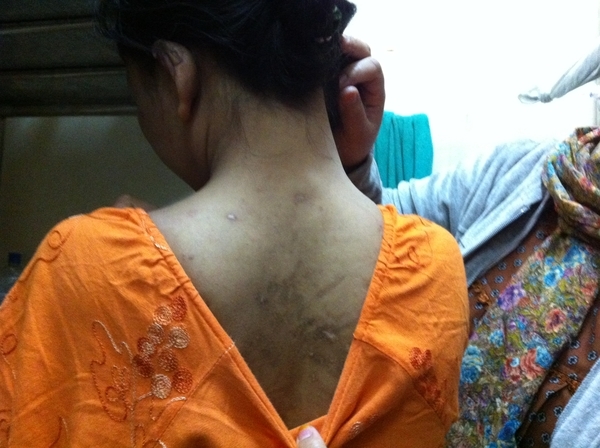Report highlights abuse of domestic workers in Qatar

Qatar came under further scrutiny for its treatment of foreign workers on Wednesday, as Amnesty International released a new report on domestic worker abuse in the country.
While in recent weeks media has focused on the plight of migrant construction workers building stadiums for the 2022 FIFA World Cup, this report highlights abuses faced by migrant domestic workers who will likely be working in the country long after the tournament has ended.
Entitled “My Sleep Is My Break – Exploitation of Migrant Domestic Workers in Qatar”, the report highlights conditions like “extreme working hours and lack of rest days, including seven-day, 100-hour working weeks” as well as restrictions on freedom of movement and communication such as bans on leaving the house or making phone calls. It also accuses employers of verbal harassment, dehumanising treatment, physical abuse and sexual violence.
Amnesty spoke to 52 female employees, collecting disturbing testimonies from workers describing their daily ordeals. "I had to start work at 4am” says one female worker interviewed In Doha. “I had to start at exactly that time. I would get about three to four hours sleep. I would be constantly washing or ironing clothes and if the clothes were not clean enough I would have to wash and iron them again. My hands split and bled because of the work ... I would run so hard that I would fall, and I lost feeling in my feet. I wasn’t even allowed to go to toilet while I was working.”
Amnesty said it does “not claim that all domestic workers in Qatar are poorly treated or that all employers are abusers”. They added that “many” employers respected workers’ rights but said that the instances of abuse were not isolated cases.
The report also pointed to a trend in the where maids are often stigmatised in the Qatari media, citing headlines like “Maids divide men and their wives with sorcery and witchcraft” (Al Arab, January 2012), “Take-up for installing cameras in homes to monitor 'maids', fearing for children, (Al Arab, April 2012) “Escaped maids behind 90% of thefts, (Al Watan, November 2012) and “Thug maids” (Al Sharq, November 2012).
Domestic workers suffering from harsh and abusive working conditions have no form of redress, said the group. Amnesty wrote that it had not come across any cases during its research in which a domestic worker was successful in achieving a conviction against their employers for physical or sexual abuse.
Amnesty end their report with a long list of recommendations aimed at improving the situation for domestic workers. Among many other, they include improved legal protection, and the establishment of more "shelters for women who have left their employers without permission and wish to return to their home countries".
Middle East Eye propose une couverture et une analyse indépendantes et incomparables du Moyen-Orient, de l’Afrique du Nord et d’autres régions du monde. Pour en savoir plus sur la reprise de ce contenu et les frais qui s’appliquent, veuillez remplir ce formulaire [en anglais]. Pour en savoir plus sur MEE, cliquez ici [en anglais].

